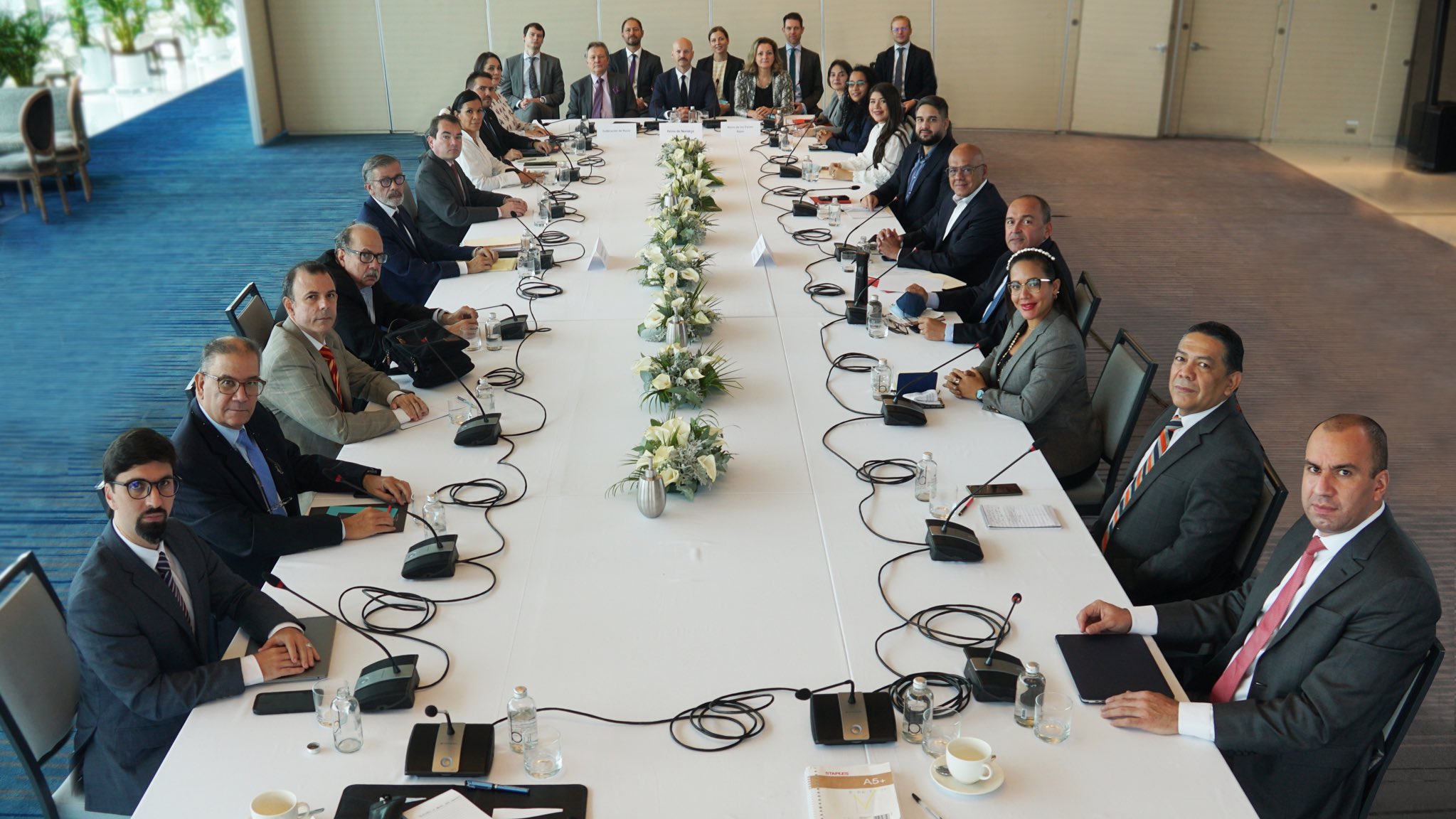The Venezuelan government and the platform of far-right opposition forces in the country reached partial agreements during the second round of the dialogue and negotiation process held in Mexico City between September 3 and 6.
On the night of September 6, the head of the government’s negotiating team, Jorge Rodríguez, reported that the representatives from both sides had signed the first two agreements to find ways to resolve political differences and address the pressing needs of the Venezuelan people.
The first agreement recognizes Venezuela’s sovereignty over Guayana Esequiba, and the second one establishes mechanisms to recover Venezuela’s resources overseas to support the social needs of its population amid the COVID-19 pandemic.
Regarding the agreement on Guayana Esequiba, an area rich in mineral resources that has involved Guyana and Venezuela in a territorial dispute for over two centuries, Rodríguez explained that it is “a profound declaration of support, of respect for history, the right that our country has had since the times when we were a Captaincy General to the territory of Guayana Esequiba.” He stressed that the 1966 Geneva Agreement is the only instrument that Venezuela recognizes to settle disputes in border material in a friendly and bilateral manner.
With regards to the agreement that allows Venezuela to reclaim its assets abroad and recover its money in foreign accounts, Rodriguez said that “these resources will be immediately used for the economic recovery in the post-pandemic phase, the fight against COVID-19, acquisition of more vaccines, provision of hospitals, strengthening of food programs, and attention in general to the people of Venezuela.”
Rodríguez said that there are still many issues to be discussed and indicated that both parties will continue the talks in Mexico at the end of the month between September 24 and 27.
In a joint statement, both parties expressed that the discussion on the constitutional rule of law, in particular, the justice system and respect for the institutions established in the constitution as well as the special drawing rights with the International Monetary Fund (IMF), would be on the agenda of their next round of negotiations.
Venezuelan President Nicolás Maduro described the negotiations as “a success for Venezuelans.” “We did it again in Mexico. We sat down with the opposition to talk about important issues for the country. The dialogue for peace and recovery is a success for Venezuelans. All our thanks to the government and people of Mexico,” said Maduro in a tweet.
The government of Mexico, which serves as the host of these dialogues, also welcomed the agreements reached in the country.
These negotiation talks are crucial as they could provide for lifting of sanctions, imposed by the United States and Europe, on the country’s officials and institutions -including the state oil company PDVSA-, which have already cost billions of dollars in economic losses and tens of thousands of innocent lives.
Unlike the previous two negotiation meetings, which ended without an agreement, the current dialogue process in Mexico, which began last August, seems to have the potential to end years of political crisis and economic instability in Venezuela.
One of the first positive results of the process was recently made public when the far-right opposition sectors, which have been boycotting the elections for the last five years, announced that they would participate in the upcoming regional and municipal elections scheduled for November 21.
The dialogue process has been facilitated by Norway and has received the support of the Netherlands and Russia.





